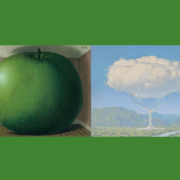From the organization-in-the-mind to the organization as subject: conceptual maps for psychoanalytic consultancy in institutions
Abstract
Organizational consultancy has been using methods and approaches of psychoanalytic origin for several decades now, especially when the problems involved seem to imply significant emotional and inter-personal aspects, that leaders, key figures and often the involved subjects themselves appear mostly unaware of or visibly unwilling to know.
A considerable amount of literature is now available so that those who are interested in this subject can study it in further depth in its various aspects and its multiple applications. The aim of this article is rather an attempt to better specify the “object” of these professional practises, providing some conceptual maps and tools for guidance that can help consultants (but managers as well) from an analytical or psychotherapeutic background not to get lost in a mare magnum of theories and techniques where a number of specific risks are present alongside questionable improvisations and methodologies for every season. I am not referring so much to the various possible forms of narcissistic seduction or omnipotent vocations which can drag a consultant into disaster or into perverse collusion with a client, but rather to the danger of losing sight of the object of one’s own work, simplifying its complex nature, dealing more with the people than the processes (or vice versa), reifying the organization or anthropomorphizing it, losing the capacity to distinguish between fantasy and concrete reality; all this is a setting which the consultant Read more


